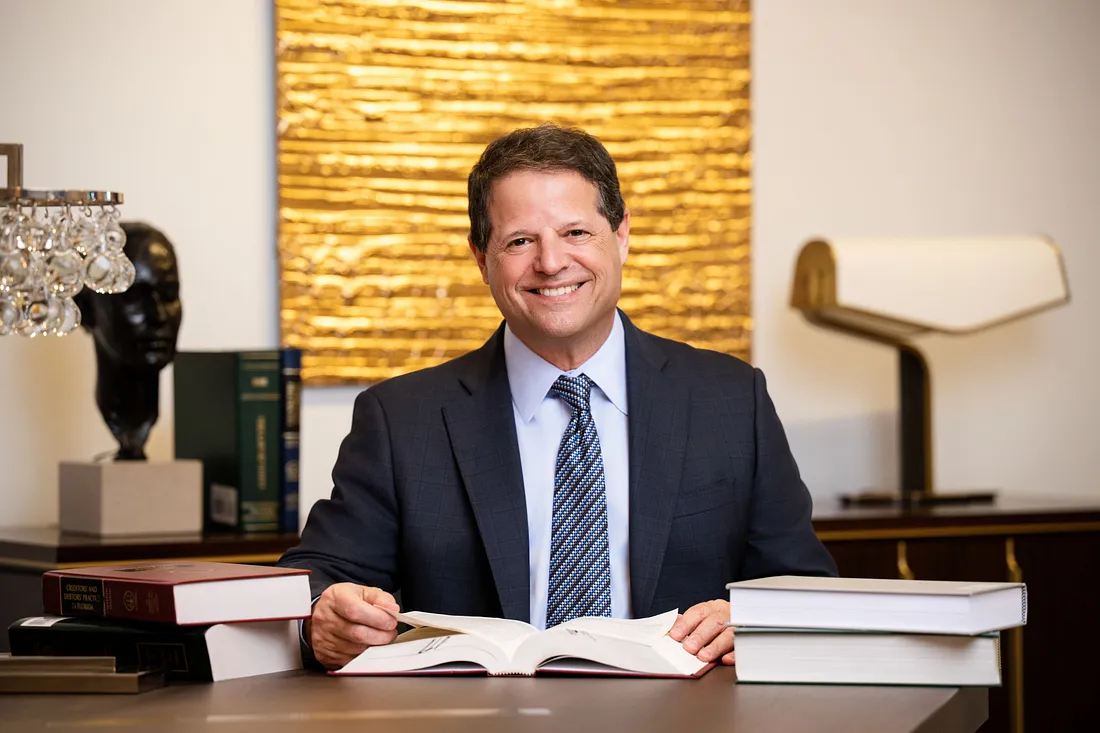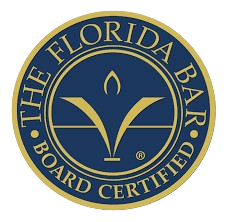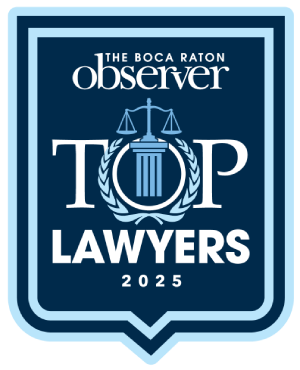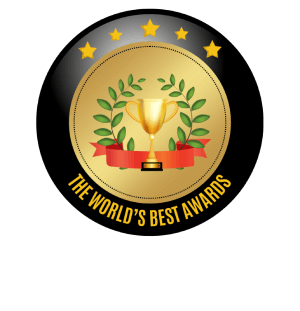The legal field is known to be extremely competitive. Lawyers are often smart, ambitious, and highly educated. That being said, what does it take to stand out and become a “Top Lawyer” in your specific field of law? In this interview series called “5 Things You Need To Become A Top Lawyer In Your Specific Field of Law”, we are talking to top lawyers who share what it takes to excel and stand out in your industry.
As a part of this interview series, I had the pleasure of interviewing Andrew Rader, Founder of Rader Law Group, a leading personal injury law firm in South Florida. He is within the top 1% of board-certified lawyers who have been recognized by the Florida Bar in civil trial practice, an honor earned through demonstrated excellence in legal knowledge, and a proven record of extensive trial experience.
Thank you so much for joining us in this interview series. Before we dig in, our readers would love to get to know you a bit more. What is the “backstory” that brought you to this particular career path in Law? Did you want to be an attorney “when you grew up”?
Ihave never been particularly motivated by money. I’ve been motivated by large concepts such as justice, goodness, and what is “the right thing to do.” As a result, I never really had a particular “when I grow up” profession, and I didn’t know what lawyers did or how they spent their time. After I graduated college, I became concerned about nuclear war, moved to Washington DC, and got an unpaid position in a congressman’s office working on his defense issues. A few months later, I obtained a paid position in a different congressman’s office. I enjoyed my time on Capitol Hill but soon realized that it was the lawyers who got things done. So, I attended law school but even as I was getting ready to graduate and other top students were getting extremely well-paying positions at large law firms, I chose to apply for only one job — to be a public defender in New York City, where I could fight for street-level justice and the rights of the impoverished and the accused. From the day I found this purpose, I have loved being a lawyer.
Can you tell us a bit about the nature of your practice and what you focus on?
I am privileged to be one of less than 1% of Florida lawyers who is board certified in civil trial law. This means that the Florida Supreme Court has taken the time to test me and to examine my credentials before awarding me this status. No other status, other than board certification, is recognized by the Florida Supreme Court. As a litigator, I handle personal injury, medical malpractice, and business disputes of varying sizes. My practice is often made up of trying to find business solutions to business disputes and seeking to resolve cases as quickly and as well as I can for my client.
You are a successful attorney. Which three character traits do you think were most instrumental to your success?
As any successful attorney will tell you, it is critical that you have a deep understanding of the law, both what is taught in law school and what is acquired through experience. However, success in the world of litigation requires that you obtain a reputation for taking cases to trial and to verdict if necessary. Otherwise, your opponents will believe that if they just push hard enough, you will fold. Last, you must develop the people skills and the networks so that people will know, like, trust, and refer to you the cases that will drive your success. Even the best attorney in the world cannot be successful if he doesn’t have the cases to prosecute.
What unique qualities do you have that others may not? Can you please share a story or example for each?
Every successful trial attorney has unique qualities. I believe my success is due to tenacious advocacy combined with an agreeable personality. For example, I recently handled a case in which my opponent told me that his client “always felt a step behind” my aggressive prosecution of the case. This information showed me that I doubled up on pushing the case, while at the same time I was open and available for meaningful conversations about the case and how it might be resolved. I’ve always liked the imagery of a steel hand in a velvet glove, and I try to handle my cases in that way.
Do you think you have had luck in your success? Can you explain what you mean?
Luck always plays a role in one’s success. It comes in the form of people you meet by happenstance who refer cases to you, getting an adjuster on the other side who is more open to paying the money your client deserves, and getting a judge who is fair and lets you try your case as you see fit. But some say that luck is the ability to recognize and capitalize on change and in that way, if you have the skills, you can create your own luck.
Do you think where you went to school has any bearing on your success? How important is it for a lawyer to go to a top-tier school?
Top litigators make their way by force of personality, preparation, and the courage to take risks and believe in their skills. So, as a litigator, I do not believe that going to a top-tier law school was instrumental in my success. In fact, I would recommend that networking and who you know is more important than where you went to school. For example, if you plan to practice litigation in Miami, you may be better off going to University of Miami (which is an excellent school, by the way) than Harvard or Yale. But this also depends on what kind of law you want to practice. There are many top national law firms that will only accept graduates from top-tier schools and if it is your hope to practice at a large national firm, attending a top-tier school will help you.
Based on the lessons you have learned from your experience, if you could go back in time and speak to your twenty-year-old self, what would you say? Would you do anything differently?
If only I could go back and speak to my 20-year-old self, I would tell him two things: first, be bold and believe in your skills. Second, I would tell him to learn the business of how to run a successful law firm because what they teach you in law school is not to teach you to be a financial success.
This is not easy work. What is your primary motivation and drive behind the work that you do?
I have never been particularly money motivated. But because I have been cause oriented, I do cases I believe in and feel strongly about and reject cases that do not hold emotional appeal for me. So, I find a great deal of meaning in my work. At the same time, because I worked so hard for things I believe in, I have also enjoyed the byproduct of financial success that comes with working hard with all of your heart.
What are some of the most interesting or exciting projects you are working on now?
The world of in vitro fertilization and the litigation issues surrounding it are in their infancy, so to speak. What happens to lost embryos, or embryos that are discarded because the parents no longer want them, who have separated from one another, can’t decide to whom they belong, who have lost touch with the fertility bank, or simply can’t afford to have their eggs implanted? These questions raise some of the most serious moral, meaningful, and ethical issues that have crossed my desk in some time.
Where do you go from here? Where do you aim to be in the next chapter of your career?
I look forward to practicing law for many years to come. And while I may slow down, I hope to teach and to instill in young lawyers the unique importance, necessity and good they can do with their profession.
Without sharing anything confidential, can you please share your most successful “war story”? Can you share the funniest?
I could never identify a single “war story” that is my most successful or favorite. When I achieve a large monetary recovery, my clients may often know that while money is great, it will never replace the loss of good health or loved ones. I have never recovered over a million dollars for a client who wouldn’t cleanly give it back to have their health returned to them. And so, even the most “successful” injury case leaves everyone unsatisfied. Still, in my days as a public defender, when someone was saved from a life of incarceration by good lawyering that showed that they were not guilty of a particular crime, I could not help but walk away with a sense of pride and satisfaction.
I have had many funny things happen to me in court. Perhaps the funniest was in my very earliest days as a public defender, my client came to his trial for breaking a windshield wearing a shirt that said, “if it ain’t broken, break it”. I in turn made him wear his shirt inside out and then got him an acquittal.
Ok, fantastic. Let’s now shift to discussing some advice for aspiring lawyers. Do you work remotely? Onsite? Or Hybrid? What do you think will be the future of how law offices operate? What do you prefer? Can you please explain what you mean?
There is no question in my mind that aspiring lawyers should work in offices and physically attend court whenever they can. There is nothing like the water cooler conversations in which you pick up the tidbit of law, or have the opportunity to simply sit in court waiting for your case to be called and watching excellent lawyers argue. It is also important to develop relationships with opposing counsel so that you have a basis upon which you can negotiate and learn to trust, or not trust, your opponent. While law can be researched, relationships must be built with time and presence. It has also been my experience that lawyers who do not know one another tend to act more unnecessarily aggressive toward one another, which is not in either of your client’s interests.
How has the legal world changed since COVID? How do you think it might change in the near future? Can you explain what you mean?
The legal world has changed enormously since Covid and the biggest change, as mentioned above, is the lack of lawyers attending court. Now, hearings are held by zoom and while you may be able to watch other attorneys argue, you don’t get the opportunity to sit next year opposing counsel and get to know one another. This has been bad for the profession of law as good lawyers know that relationships and compromise are usually good friends.
Excellent. Here is the main question of our interview. What are your “5 Things You Need To Become A Top Lawyer In Your Specific Field of Law?” Please share a story or an example for each.
Here are 5 things you know to become a top lawyer in litigation:
- Besides the substantive law, you need to know and understand the rules of evidence. This is difficult to obtain without having actual trial experience where you see objections and how they play out in real time.
- You need to understand that taking cases to trial is the only way to become a true trial lawyer and the only way to earn the respect of opposing counsel and insurance companies. You don’t need to win every trial, but you do need to show that you are willing to try.
- You need to understand the importance of having good relationships with opposing counsel and to be cooperative when opposing counsel has a personal issue. What goes around comes around and you may need a favor someday.
- You need to understand the business of your law firm, where your cases come from, how much they cost to prosecute, and what your profit margins are.
- You need to know what motivates you and to take cases that will propel you, your career and the community around you in a way you will feel proud about at the end of your career.
We are very blessed that some of the biggest names in Business, VC funding, Sports, and Entertainment read this column. Is there a person in the world, or in the US with whom you would love to have a private breakfast or lunch, and why? He or she might see this. 🙂
I would love to have lunch or breakfast with the great trial lawyers of our day. I still have so much to learn.
This was very inspiring. Thank you so much for the time you spent with this. We wish you continued success and good health!

